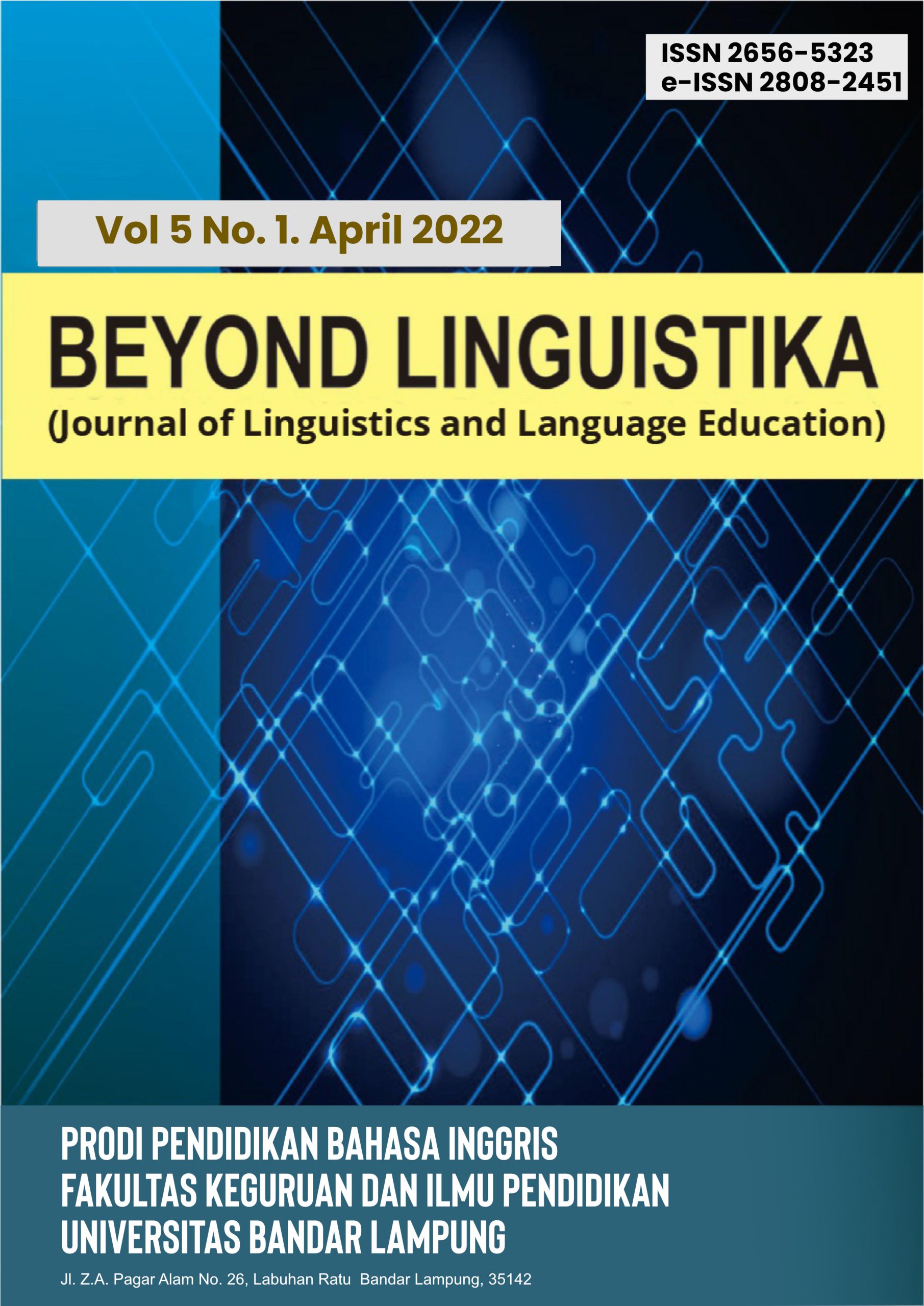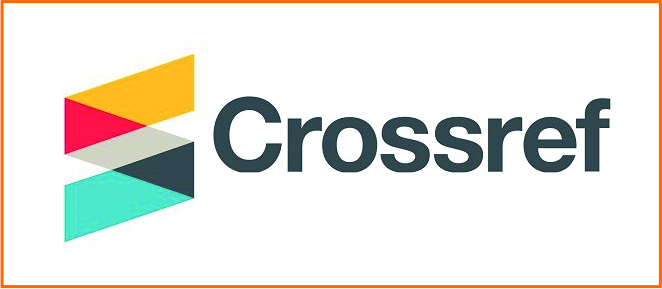THIS IS NOT THE WAY WE DO TO SOLVE THE PROBLEM: THE LITERATURE COLLEGE PERCEPTIONS ON ANA KARENINA’S LIFE
Abstract
Keywords
Full Text:
PDFReferences
Abrams, M.H. (1999). A glossary of literary terms. (7th ed.). Boston: Heinle & Heinle.
Adhani, J. A. (2018). A reader approach in Leo Tolstoy’s novel “Anna Karenina”. Appolo Project, 7(1).pp. 1-10. Retreived from: file:///C:/Users/WIN7_UL_Sp1/Downloads/1992-Article%20Text-4988-1-10-20190816.pdf
Al-Alami, S. (2018). Point of view in narrative. Theory and Practice in Language Studies, 9, (8), pp. 911-916. Retrieved 20 August 2022 from: http://dx.doi.org/10.17507/tpls.0908.03
Andriyani, E., & Eryon. (2021). An analysis of a movie “Anna Karenina” according to the theory of literature, SIGEH ELT,1(2), pp. 106-112. Retrieved 20 August 2022 from: file:///D:/ANNA%20KARENINA%20SUMBER.pdf
Anggawasita, N.A. (2010). An analysis of the main character through feminism approach in the novel Lucia by Adriana Trigiani. (Undergraduate Thesis of Faculty of Letters). Syarif Hidayatullah Islamic State University. Retrieved July 5th 2022 from: https://repository.uinjkt.ac.id/dspace/bitstream/123456789/1622/1/92929-NUR%20ATIQAH%20ANGGAWASITA-FAH.pdf
Baker, C. (1992). Attitudes and language. Clevedon: Multilingual Matters.
Barnet, S., Burto, W., & Cain W., E. (2008). An introduction to literature: Fiction, poetry, and drama. New York: Pearson Longman.
Creswell. J.(2008). Educational Research. New Jersey: Pearson Education.
Delf, L., & Williams, M. (2022). What is protagonist? The Oregon State Guide to English Literary Terms. Retrieved 29 September 2022 from: https://liberalarts.oregonstate.edu/wlf/what-protagonist
Fraenkel, J. R., Norman E. Wallen, & Hyun, H. H. (2012). How to Design and Evaluate Research in Education (8th ed.). New York: McGraw-Hill.
Goodyer, M.G. (2008). Literary theory, the novel and science media. (Master Thesis). University of Montana. Retrieved 20 July 2022 from: https://scholarworks.montana.edu/xmlui/bitstream/handle/1/1351/GoodyerM0508.pdf?sequence=1
Robert, E. V., & Jacobs, H.E. (1987). Fiction: An Introduction to Reading and Writing. Englewood Cliffs: Prentice-Hall, Inc.
Pepe, T. M. (2016). Teacher perceptions and attitudes of classroom technology integration related to iPad training. (Doctoral dissertation). College of Education of Walden University, USA. Retrieved May 26 2022 from: http://scholarworks.waldenu.edu/dissertations
Perawati, H. (2018). Feminism in Maleficent Film by Robert Stromberg. (Undergraduate Thesis of English Literature Department of Adab and Humanities Faculty). The State Islamic University Sulthan Thaha Saifuddin Jambi. Retrieved 04 April 2022 from: repository.uinjambi.ac.id.
Rogers, J. (2014). Introduction to the novel (pp. 116-126). In Steven E. (ed.) The Hand Book of Creative Writing. (2nd Ed.). Edinburgh: University of Edinburgh.
Septian. (2021). Liberal feminist values as reflected in Leo Tolstoy’s Anna Karenina. COMMICAST, 2(1). pp. 8-14. Retrieved August 20 2022 from: http://journal2.uad.ac.id/index.php/commicast/article/view/2733/pdf
Sianipar, A.R., Jusmaya, A. (2019). The unfulfilled love and belonging needs found by the main character in “Anna Karenina” by Leo Tolstoy: Psychological approach. SCIENTIA JOURNAL, 1(2), pp. 1-10. Retrieved September 20 2022 from: https://ejournal.upbatam.ac.id/index.php/scientia_journal/article/view/2516/1361
Webber, J. (2006) Virtue, character and situation. Journal of Moral Philosophy,3 (2). pp. 193-213. Retrieved 20 August 2022 from: https://doi.org/10.1177/1740468106065492
DOI: http://dx.doi.org/10.36448/bl.v5i2.2807
Refbacks
- There are currently no refbacks.















